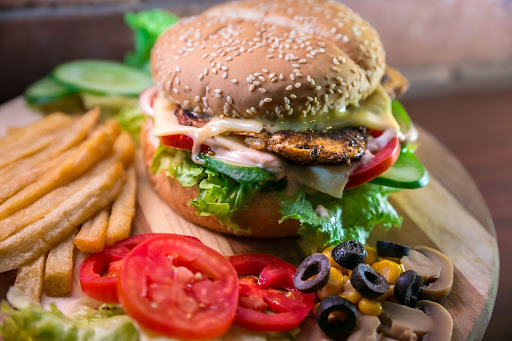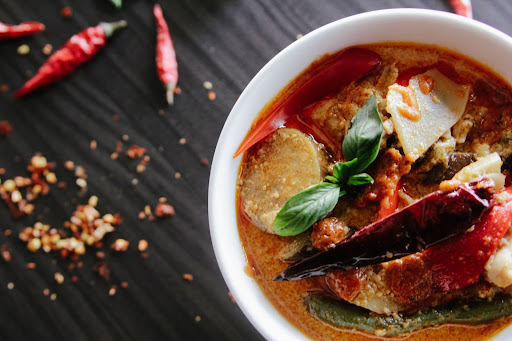Appendicitis is a serious medical condition that causes an individual to experience severe abdomen pain.
The disease mainly occurs due to the blockages in the appendix which causes infection – giving birth to multiple bacteria and leading to an inflamed appendix, ultimately increasing the risk of developing appendicitis.
For those who don’t know, the appendix is a small thin pouch connected to the large intestine near the abdomen. Experts state that the appendix doesn’t play a significant role in the functioning of the body, and one can live a normal life without it.
Generally, appendicitis can occur at any age, but people between 10 and 30 have a high chance to get it. If not treated at the right time, appendicitis can worsen and may lead to a burst.
There can be many reasons for the development of appendicitis, which includes your diet as well. In this article, we are going to discuss the same.
Read on to find out what foods can cause appendicitis? And how can you reduce the risk of appendicitis?
What Food Can Cause Appendicitis?
There are certain foods that can provoke and worsen the appendicitis and must be avoided at any cost.
Fast Food
It has yet to be fully proven that fast foods cause the development of appendicitis. But, it is believed that if an individual consumes fast foods more frequently, they are at a high risk of developing appendicitis.
The main reason behind it is that most fast or processed foods are high in calories, contain unhealthy fats, and barely have any nutrients, which impacts the digestive system negatively and causes inflammation, and increases the chances of developing appendicitis.
Sugary Food
Consuming sugar in large amounts can increase the risk of appendicitis. Sugary foods and refined carbs are known to spike your insulin and promote the growth of harmful bacteria, which can cause appendicitis and other health issues like colon cancer, bad digestion, irritable bowel syndrome, etc.
Therefore, it’s recommended to decrease the consumption of sugar or refined carbs to eliminate the risks of appendicitis. Instead, opt for natural sugar sources like fruits.
Foods That Consist Of Seeds
Fruits and vegetables like date, cumin, nuts, cucumber, etc., can disturb the digestive system and may lead to blockages in the appendix and cause appendicitis. Thus, if you are experiencing any symptoms of appendicitis, avoid foods that contain seeds, especially if you have a weak immune system.
Spicy Foods
Spicy or acidic foods can disrupt the digestive system, which may give birth to inflammation in your digestive tract. It can cause blockages in the appendix, which may further be developed in appendicitis. If you have been experiencing any symptoms of appendicitis, limit the consumption of spicy food to stop your condition from worsening.
One Tip: Chew your food properly. Unchewed food can be difficult for the body to digest the food. It can cause blockages in your appendix and may lead to appendicitis.
What Are Some Other Causes Of Appendicitis?
Here are some other factors that may cause blockage in your appendix, which can lead to appendicitis.
- Hardened stool or thick mucus stuck in the intestine
- Inflammatory bowel disease
- Infection in the digestive tract
- Hemorrhoids or piles can also lead to appendicitis.
- Any past surgery in the abdomen
What Are The Symptoms Of Appendicitis?
If you are suffering from appendicitis, you are likely to experience various symptoms.
In the initial stages, you may feel pain in the belly or around the area where the abdomen is located. As time goes by, the pain may get worse when it shifts to your lower right abdomen.
Other possible symptoms that may occur, includes:
- Loss of appetite
- Fever
- Nausea
- Urinating more frequently
- Distended abdomen
- Diarrhea or constipation
- Lack of energy or feeling sick
- Fever
How Do You Reduce The Risk Of Appendicitis?
Experts state that currently, there is no way to prevent appendicitis. But, the consumption of some food may help you with your appendicitis.
For instance, including foods in your diet that are high in fibre like oats, fruits, brown rice, etc can be helpful.
If you are experiencing symptoms of appendicitis like nausea or vomiting, then mint or ginger tea is recommended to ease the discomfort.
You can also include vegetable juices. Cucumber, carrots and beetroot juices are known to be ideal to not only help your appendicitis but your overall health condition.
What Is The Cure For Appendicitis?
According to health experts, surgery is the most optimum way to cure appendicitis. But, some mild cases might get treated with the help of antibiotic treatment.
However, if the appendix is left untreated, results can be threatening as there are chances that your appendix may burst. That’s why diagnoses and surgery at the right time are needed.
If you are developing symptoms of appendicitis, reach out for medical help. Most likely, they will first run your physical examination test and ask you questions about the symptoms you have been experiencing. They may also take your blood and urine tests to ensure the disease.
Further, if appendicitis is not appropriately diagnosed, your doctor may also recommend tests like an ultrasound or CT scan to confirm the pain is being caused by appendicitis or any other health condition.
Once the appendicitis is confirmed, doctors recommend removing the appendix with the help of surgery. But, if the patient is suffering from any severe disease or suffered a heart attack in the past, then antibiotic treatment is recommended as surgery is not the viable option in that case.
The surgery that is done to remove the appendix is known as appendectomy, which consists of two types – keyhole and open surgery.
- Keyhole Surgery – In this surgery, your abdomen gets 3-4 cuts in order to remove the appendix. The whole process is done using various tools like a tube laparoscope to remove your appendix effectively. After removing your appendix, stitches will be used to close the cuts.
- Open Surgery – This surgery is usually performed if the appendix already burst or the patient has had open abdominal surgery lately. In open surgery, a larger cut is made in the lower right side of the abdomen to remove the appendix. After the completion, stitches are used to close the cuts.
As per the recovery, keyhole surgery tends to recover faster than open surgery. The discharge of the patient can be expected within a few days. On the other hand, open surgery takes a bit longer for recovery, probably a few weeks.
Remember that problems like vomiting, pain, high temperature, swelling, or any other discomfort around the area of surgery can still occur. It’s recommended to stay in touch with your doctor for help if you experience any discomfort after the surgery.
Conclusion
Appendicitis is a critical condition which occurs when the blockages or inflammation takes place in the appendix. It requires immediate treatment, otherwise it can lead to other complications.
There’s not any concrete way to prevent Appendicitis, but having a healthy diet consisting of foods that promotes a healthy digestive system can be beneficial.
FAQs (Frequently Asked Questions)
Which Doctor To Consult When Experiencing Appendicitis Symptoms?
A general surgeon or physician must be consulted if you experience appendicitis symptoms.
What Happens When The Appendix Is Removed?
After the surgery, you are likely to experience slight pain in that area, but it improves with time. Your doctor will recommend some medications to relieve the pain and prevent any further infection.
Can Pain Relievers Help In Reducing Appendicitis Pain?
Yes, pain relievers can help you reduce your appendicitis pain, but only for a short amount of time. Pain relievers do not cure the underlying issues. Thus, proper medical treatment is required to help your appendicitis pain.






